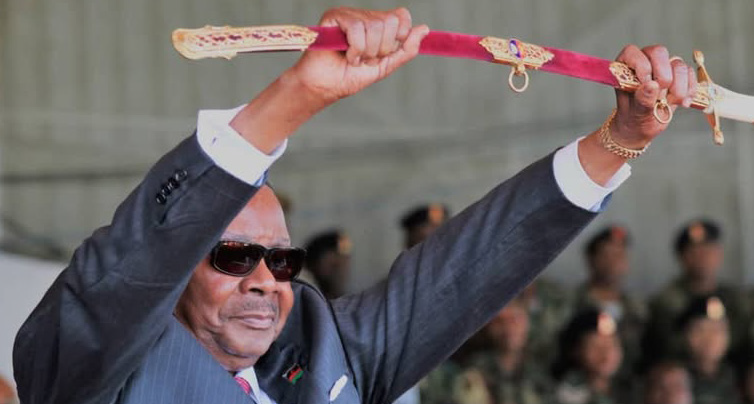Why presidential hopefuls pick women running mates
For the first time in Malawi’s political history, multiple presidential candidates have chosen women as their running mates. Does the shift signal a new era of gender inclusion? DW correspondents NONTOKOZO MCHUNU, EDDY MICAH and ISAAC MUGABI write.

Malawi will hold elections on September 16. Several presidential candidates in the nation of 21 million have nominated women as their running mates.
Civil organisations have been pushing for female representation in political leadership, including the so-called 50-50 Campaign that advocates for 50 percent female representation in Parliament to bring it more in line with the country’s demographics.
Women dominate the 2025 electoral roll, with 57.1 percent of the registered voters, according to figures from the Malawi Electoral Commission (MEC).
Gender inclusion?
Many Malawians are asking whether the decision by several parties to field female running mates marks a genuine shift toward a new era of gender inclusion in Malawi’s politics.
Sainala Kalebe, a lecturer specialising in political leadership at the Catholic University of Malawi, told DW’s AfricaLink that the women in question are running mates rather than presidential candidates—putting them in a subordinate position.

She added that, with the exception of the Democratic Progressive Party (DPP), the political parties with women as running mates are smaller ones, whose only chance of succeeding in the election would likely be “through post-election coalitions, depending on the legislative political strength they get during the elections.”
“These running mates will find themselves bargaining once more, to get into power, once the elections are over and the post-elections-coalitions are being figured out,” Kalebe said.
While the impact may not be as significant as we would expect it to be, she said, it is a step in the right direction.

Meanwhile, Joyce Banda is the only female presidential candidate running in the 2025 election.
The 74-year-old educator and women’s rights activist, who is running for the People’s Party, became the first woman to become president in Malawi in 2012, stepping up from vice-president after the death of Bingu wa Mutharika.
Banda left the country in 2014, having lost the presidential election and facing questioning over a corruption scandal. She returned to Malawi after four years in exile.
Political shift
According to an August 2025 study published by Afrobarometer, food shortages top the “most important problems Malawians want the government to tackle,” with the cost of living, farming, health, economic concerns and corruption also making the list.
Kalebe told DW that she didn’t think that voters would be persuaded by the gender ticket alone, unless the parties combine the gender ticket with the other pressing issues.”
Miriam Kaliza, DW correspondent in Malawi’s capital, Lilongwe, spoke to some Malawians who had mixed reactions to the new developments in Malawian politics, which has long been dominated by men.
Kaliza noted that lot of Malawians were excited, especially women, the youth and those championing women’s rights.
However there was also skepticism, particularly among traditionalists and political loyalists, who questioned the political weight of the women chosen as running mates, many of whom are considered relatively unknown and lacking influence.
Kaliza also said that many Malawians believe that some of the women were chosen as running mates as part of a box-ticking exercise, rather than out of a genuine desire to put women at the forefront of political leadership.
How does Malawi compare to other African nations?
According to Afrobarometer’s 2024 African Insights: Democracy at Risk, Rwanda leads with 61 percent of female representation in Parliament, followed by Namibia at 50 percent, Senegal at 46 percent and Malawi at around 20 percent.
However, Malawi has made some significant strides on a local level.
Juliana Kaduya became the first female mayor of Lilongwe City in 2019, serving until 2021.
In 2024, Esther Sagawa was elected as the capital city’s second female mayor.
Catherine Gotani Hara became Malawi’s first female Speaker of the National Assembly in 2019. She continues to serve in that role and is recognized for her leadership and advocacy for gender inclusion.
This article has been adapted from an episode of DW’s AfricaLink podcast.





